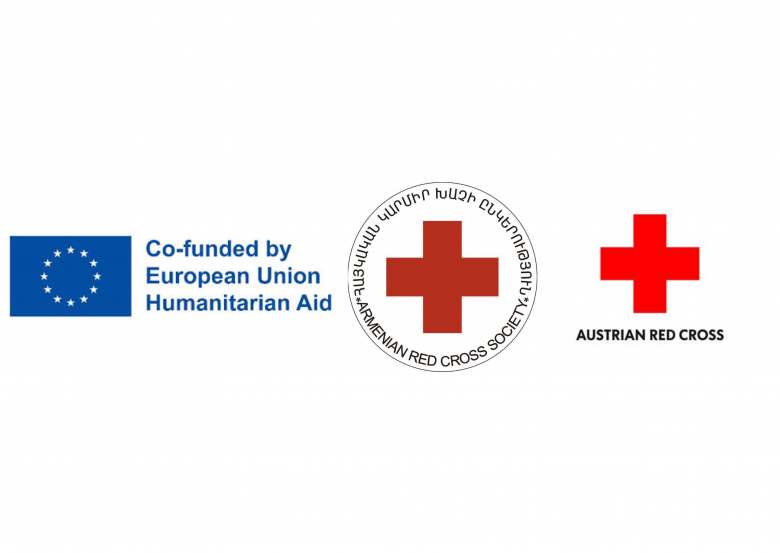
Lusine, a young woman forced to leave her home due to the Nagorno-Karabakh conflict, faced an uncertain future. She was displaced twice: First with her family from Shushi to Stepanakert in 2020, and then again in September 2023, when her young family and newborn child were among the 120,000 people who fled to Armenia.
In the beginning, her large family struggled to find a steady source of income, living with 40 relatives in a small temporary shelter with limited facilities. After the initial shock, the family settled in Artashat, renting an apartment with the support of the government. Despite these improvements, Lusine's dreams of a better life seemed out of reach.
That changed when Lusine contacted the Armenian Red Cross through a hotline used by displaced individuals to seek support. Lusine's family was visited by a case manager from the “RENEW: Restoring Livelihoods and Enhancing Well-being of Conflict-Affected Population from Nagorno-Karabakh in Armenia” project initiative of the Armenian Red Cross, supported by the European Union (EU) and the Austrian Red Cross. The case manager listened to their story, understood their problems, and offered a comprehensive intervention plan. Recognizing the challenges facing Lusine's family, the case manager also offered mental health and psychosocial support (MHPSS) also offered by the EU-funded RENEW project, to her mother-in-law to address her multiple health issues.
Lusine's passion for sewing was evident, but she lacked the resources and skills to turn it into a livelihood. Facilitated by the case manager, Lusine was introduced to the "Round Table" NGO for business support initiatives and enrolled in the "Teach Me" vocational training program, which not only enhanced her sewing skills but also provided essential business knowledge, including social media marketing. Within a few months, Lusine transformed from a beginner to a skilled seamstress, gaining confidence and expertise along the way. "Work helps to overcome stress; it's work therapy for me, which I apply to myself," says Lusine while showcasing her products.
The case manager maintained regular contact, providing continuous consultation and support. Two months later, Lusine had completed the Social Media Marketing (SMM) course and, on the case manager's advice, received a sewing machine from the "Round Table” NGO instead of a PC, which she already had.
This important equipment allowed her to take her first steps towards opening her own sewing business. Through continued support and mentorship of the project’s case manager, Lusine started a small sewing business offering tailoring and clothing repair services to her community. As a creative artist, she also expressed herself through painting and modeling, reflecting the longing for her lost homeland in her works. "Yes, my wounds are still fresh, my memories are vivid; the return of hope both helps and hinders at the same time," she comments excitedly.
Lusine began to receive orders, bringing in an income. Additionally, the digital marketing skills she acquired helped her reach customers online. Her journey from displacement to entrepreneurship has become an inspirational story in her community, showing that with support and determination, it is possible to rebuild a life from the ground up.
Today, Lusine not only supports her large family but also contributes to her community by providing affordable sewing services. Her success is a testament to the power of empowerment and the valuable role organizations like the Armenian Red Cross play in changing lives.
Lusine's story is a beacon of hope for many displaced people, highlighting the profound impact of community support, the opportunities for skill development, and the resilience of the human spirit. Her journey from displacement to entrepreneurship shows how dreams can become reality with the right help.
With the financial support of the European Union Humanitarian Aid and the Austrian Red Cross, this project provides individual and group psychological support to around 10,000 people; 500 teachers are trained on child protection and psychological first aid topics; six safe spaces ("Smiley Clubs") are established for children; 2850 received cash assistance; and 1,000 individuals received livelihood support (including counselling, employment assistance, and referrals).